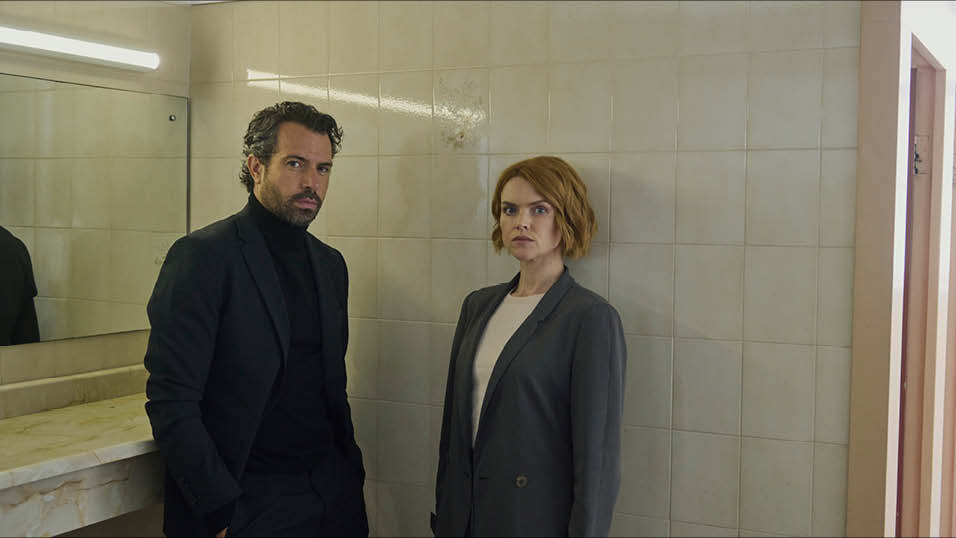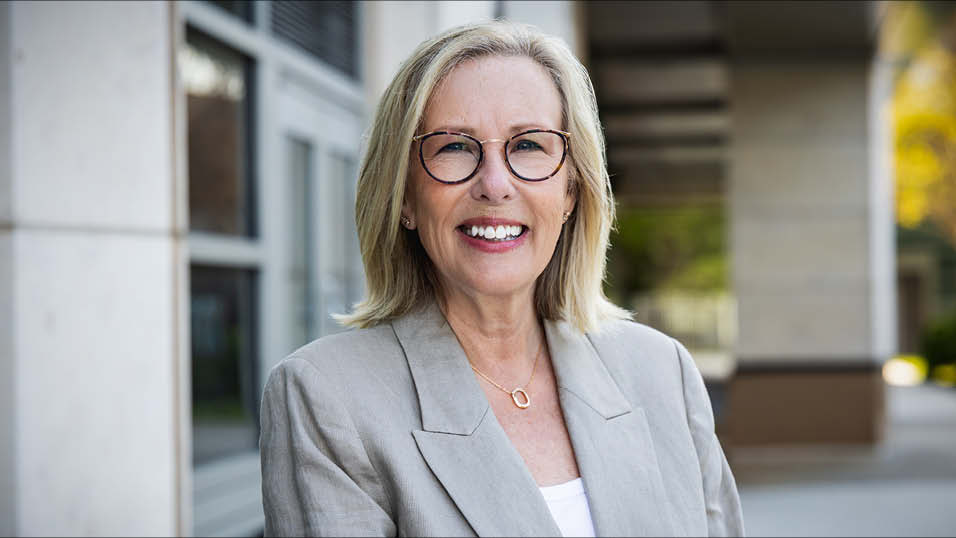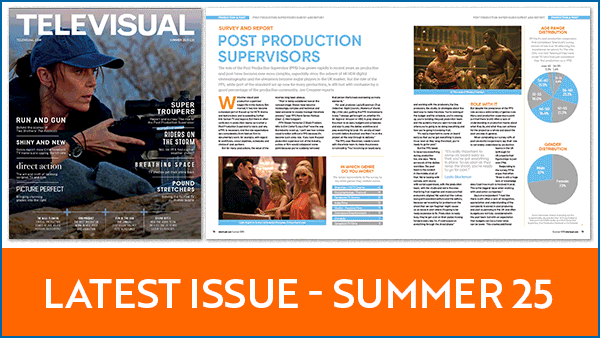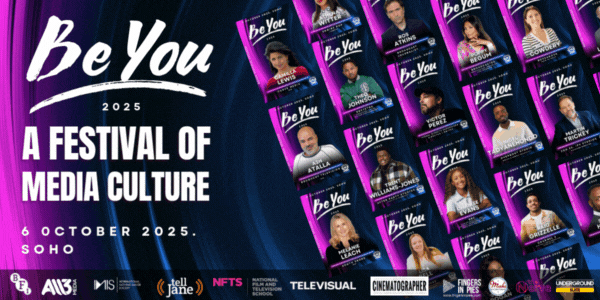It all began back in the late 1990s. The phenomenal success of pioneering British formats in the United States, like Who Wants to be a Millionaire?, Survivor and The Weakest Link, has led to an ever-increasing amount of business between the two countries’ television industries.
This was cemented in the mid-noughties with further success for British formats, like The X Factor, Pop Idol, Wife Swap and Supernanny. And in recent years, British producers have pushed ever further into the US market, selling in original drama like Downton Abbey through to factual shows like America: The Story of US (pictured above) and Undercover Boss.
Exporting to the US
The US market now accounts for a greater share of British TV exports than ever—up 50% since 2007, to make up almost half, or £475m, of all export revenue last year, according to Pact.
A swathe of British production companies – like Raw TV, Studio Lambert, Blink, Wag TV, Zig Zag and Firecracker – now earn some 50% of their revenues from the US market.
British execs are now a familiar sight in the US television industry. At January’s Realscreen factual market in Washington – a pitching and networking forum for producers to US broadcasters – some 300 of the 2,500 delegates were British. Senior British execs in the US industry include Fox’s head of reality Simon Andreae, ABC’s head of entertainment Paul Lee and NBC’s president of alternative and late night programming Paul Telegdy.
NBC’s senior vice president of alternative programming and development Brandon Riegg – who oversees NBC shows America’s Got Talent, The Biggest Loser and Fear Factor – says: “In LA, I don’t think there is a show we have that doesn’t have a British producer running it or at a senior level. There are a tonne of British TV folk who work in the industry.”
Brits are keen on doing business in the US because it is the largest television market in the world, worth an estimated $37bn (£22bn) a year. The number of buyers – from the key networks through to the niche cable companies – dwarfs the UK market with its handful of commissioning channels, notably the BBC, ITV, Channel 4, Sky and Channel 5. By contrast, at Realscreen, some 70 US broadcasters were in town looking to commission content.
Open for business
The Brits are also motivated to do business in the States because of the terms of trade, which 10 years ago handed to producers the rights to their programmes. If producers can translate one of their shows that has aired successfully in the UK to the United States, there is serious money to be made.
The Americans, for their part, are keen to engage with British producers. The US market is highly competitive, so broadcasters now look all over the world for unique and original content in a bid to secure a hit show.
This open attitude is summed up by Steven Lerner, the vice president of programming for Scripps Networks Interactive brands HGTV and DIY Network. “I don’t care where you are from or what you do, I just want good shows. We are open for business.” Proving that programmes are rather more important than the nationality of a production company, Lerner adds: “I can’t even tell you how many productions we have from UK companies because I get mixed up about some of the companies that are in the States. Like Leopard, is that owned by the UK? And Pioneer – I think they are based in the UK.” (Both are indeed UK companies, but with significant US operations: Leopard makes House Hunters International for HGTV, while Pioneer makes Extreme Homes.)
US buyers also like to take as much risk out of the commissioning process as possible. So it’s an advantage for British producers to sell in an idea for a show that has already earned its stripes in the competitive UK market. Indeed, being British is a great asset. The UK market, where public service broadcasters have a remit to produce original and innovative programming, is respected in the US for being highly creative and risk taking. British producers say the US market is often more open to them than the UK. Whereas producers can easily get pigeonholed in the UK for making certain kinds of shows, the US is seen as more meritocratic.
Agents and lawyers
However, doing business in America is different to the UK, say British producers. The difference between the two markets was the subject of panels at both Televisual’s most recent Factual Festival and at the Realscreen conference.
Producers say it’s best to start small in the US, rather than splashing out on an expensive office and high overheads. Firecracker’s Mark Soldinger recalls arriving in LA in 2009 with a suitcase and renting a room from the company’s distribution partner Zodiak, and giving himself six months on the ground to make a success of business in the US. The company, which has US credits including American Gypsy Wedding, now turns over almost 50% of its revenue from the US market.
But it’s important to partner up either with an agent or established production company if you are not a well-known producer who is looking to break into the United States. Described as a “necessary evil”, agents can open doors for producers. They have a good overview of a complex market with dozens of different buyers with different needs. Indeed, broadcasters rely on agents to help them filter ideas and set up meetings.
Agents, though, come at a price. They typically take 10% of a producer’s fee for a show. Or, if they package the show, they take 3% of the total budget. Plus, in both cases, 10% of the back end.
A good lawyer is important too. In the US, every deal is a negotiation. “There are customs but there are no fundamental terms of trade,” says lawyer Richard Hofstetter, partner and co-chairman, Entertainment Group at Frankfurt Kurnit Klein & Selz PC. The lawyer negotiates the terms of the deal, so that every eventuality is covered. For example, the deal could see the network commit to “lock” the producer for the life of a series as opposed to having the option to replace the producer at any year.
The pitching process
In the UK, it’s seen as very bad form to pitch an idea to multiple broadcasters at the same time. The UK pitching culture is monogamous, with an idea often tailored to a commissioner at a single broadcaster. In the States, by comparison, producers can be far more promiscuous. “You go out to everyone in the space of a week and say, here is what I have got,” says Nutopia chief executive Jane Root. This speeds up the pitching process too, as it means producers don’t have to wait weeks for an idea to be rejected before taking it to another broadcaster.
A sizzle reel is also crucial to help sell an idea to a US broadcaster. “For us, it’s a question of tape. It’s quite difficult to sell off paper,” says Victoria Fitzpatrick, head of television at Creative Artists Agency, who adds that a “great title helps too.”
On screen talent, either a celebrity or an outsize and compelling character, also helps sell an idea.
British producers praise US commissioners for their directness in meetings. There is less laborious small talk and decisions are made faster. “There is a wonderful directness about America,” says Root. “People either say yes, that’s great or no, I’m not interested.”
She compares it to the UK, where conversations “can go on for years, literally, before anyone makes a decision.”
Nick Emmerson, chief executive officer, Ricochet UK, adds: “The pitching process is fun there, and sometimes odd. You can set up a tape and show, and some can say absolutely nothing at all – you are out of the room. Other times, you can really engage in conversations. Here, when you pitch to Channel 4 or the BBC, it is more of a conversation or dialogue. There, you are on stage. You put on a show and try to sell.”
Tim Dams
Share this story

















